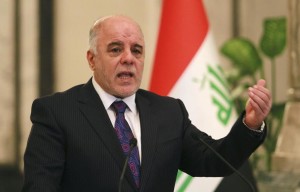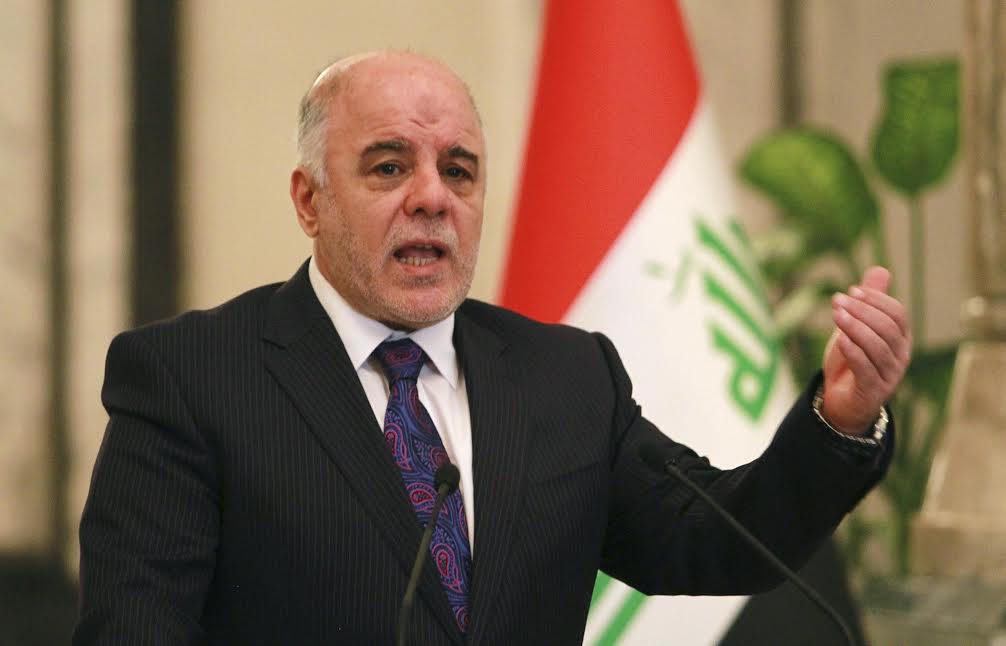 Minister Haider al-Abadi informed members of his cabinet during a Council of Ministers meeting that Baghdad will neither be lenient in its dealings with members of the Islamic State group nor entertain criticisms from civil rights organizations that have not contributed to combatting the terror group. Iraq’s army has been criticized for maltreating suspected members of the Islamic State group and their families but such voices were downplayed by the Prime Minister who hailed them as “human rights’ defenders who sacrificed themselves for the liberation of humanity and the rescue of civilians.”
Minister Haider al-Abadi informed members of his cabinet during a Council of Ministers meeting that Baghdad will neither be lenient in its dealings with members of the Islamic State group nor entertain criticisms from civil rights organizations that have not contributed to combatting the terror group. Iraq’s army has been criticized for maltreating suspected members of the Islamic State group and their families but such voices were downplayed by the Prime Minister who hailed them as “human rights’ defenders who sacrificed themselves for the liberation of humanity and the rescue of civilians.”
Abadi warned that the army’s violations of human rights will not be accepted but also urged organizations making such accusations “to check and verify their sources” before questioning “the role played by this [sic] organizations when ISIS was slaughtering people of Mosul and destroying everything in their way.”The Iraqi prime minster stressed that “no terrorist escapes punishment” or benefit from an amnesty.
Lynn Malouf, a Research Director at Amnesty International, said the Iraqi government and the U.S-led coalition “must immediately and publicly acknowledge the magnitude and seriousness of civilian casualties during” the offensive operation against ISIS.
Lama Fakih, deputy Middle East director at Human Rights Watch, said authorities are practicing collective punishment on relatives of ISIS members. She warned that such “abusive acts are war crimes and are sabotaging efforts to promote reconciliation in areas retaken from IS.”
The Iraqi government is reportedly holding around 200 families believed to be linked to members of the extremist group in a closed rehabilitation camp which right groups have referred to as de facto detention centers for collective punishments.
Iraq: PM Abadi defends army against critics
